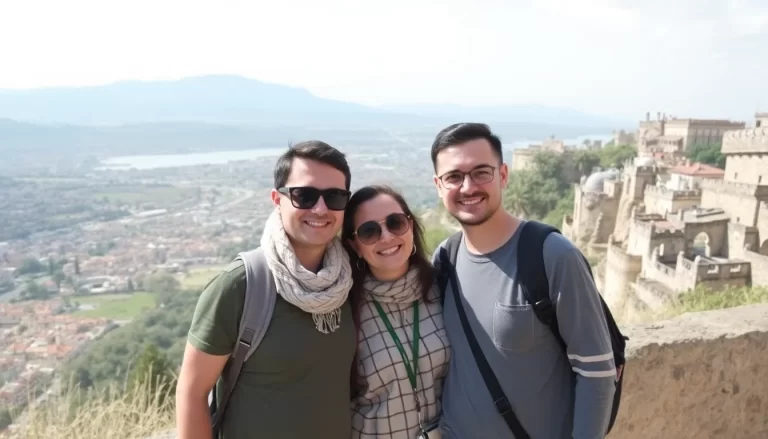Traveling on a budget is more than just counting pennies; it’s about experiencing the world in a meaningful way while being conscious of your spending. Many people aspire to travel, yet the notion of being a budget traveler often gets clouded by misconceptions and competitive attitudes. In this article, we will explore the true essence of budget traveling, debunk myths, and provide practical tips to enhance your travel experiences without breaking the bank.
Understanding Budget Travel
Budget travel refers to a style of travel that prioritizes frugality without sacrificing enjoyment and authenticity. It is not merely about spending the least amount of money possible but rather about making informed choices regarding how and where to allocate your funds. By understanding what budget travel truly means, you can embark on adventures that are fulfilling and financially sustainable.
Many travelers mistakenly equate budget travel with deprivation. They believe that to be a budget traveler, one must live like a pauper, avoiding all luxuries and experiences. However, true budget traveling means being selective about your expenditures to maximize enjoyment while minimizing costs. Even with a limited budget, you can indulge in local cuisines, explore historical sites, and engage with cultures.
Who are budget travelers?
Budget travelers come from various backgrounds and walks of life, but they share a common goal: to explore the world without overspending. Some characteristics often associated with budget travelers include:
- Resourcefulness: They know how to find deals and make the most out of their finances.
- Flexibility: They are often willing to adjust their plans to take advantage of better prices or opportunities.
- Openness to experiences: They prioritize cultural immersion and authentic experiences over luxury comforts.
It’s important to note that being a budget traveler does not imply a lack of spending power. Instead, it reflects a conscious decision to prioritize experiences over material possessions.
Defining Mass Tourism
Mass tourism refers to the phenomenon where large numbers of tourists visit the same destination during the same period, often leading to overcrowding and a dilution of the local culture. This form of tourism can sometimes clash with the principles of budget travel, as it often leads to inflated prices and diminished experiences. However, budget travelers tend to seek alternatives to mass tourism, focusing on off-the-beaten-path destinations that offer more authentic interactions.
Examples of mass tourism destinations include popular landmarks such as:
- The Eiffel Tower in Paris
- The Colosseum in Rome
- Times Square in New York City
While these places are iconic, they may not provide the profound travel experiences that smaller, less commercialized locations can offer.
The essence of being a budget traveler
At its core, being a budget traveler is about making conscious decisions regarding how you spend your money. This might involve:
- Choosing local accommodations like hostels, guesthouses, or homestays over luxury hotels.
- Eating at local markets or street vendors instead of fine dining establishments.
- Opting for public transportation instead of taxis or rental cars.
It’s essential to understand that budget travel is not synonymous with cheapness. While saving money is important, it’s equally vital to invest in experiences that enrich your journey. For instance, spending on a local cooking class or a guided tour can provide insights that you might miss otherwise.
Changing perceptions: Cheap vs. Budget
There is a prevalent misconception that budget travelers must always find the lowest prices, often leading to a culture of competition over who can travel for less. This mentality can create a toxic atmosphere among travelers, where experiences are minimized in favor of monetary savings. Instead, we should shift our focus from being cheap to being frugal, which emphasizes the smart allocation of resources.
Consider the following strategies to embrace frugality:
- Plan ahead: Research your destination to find budget-friendly options for activities and accommodations.
- Set priorities: Identify what experiences are most important to you and allocate your budget accordingly.
- Embrace local culture: Seek out free or low-cost cultural events and festivals that provide authentic experiences.
Practical tips for budget travelers
Here are some actionable tips for making the most of your travel experience while keeping costs down:
- Travel during off-peak seasons: Prices for flights and accommodations can drop significantly outside of peak tourist seasons.
- Utilize travel rewards: Sign up for travel credit cards that offer points or cash back on purchases, which can help offset travel costs.
- Stay flexible: Being open to changing your plans can lead to unplanned adventures and savings.
Moreover, consider creating a budget before your trip. Outline your expected expenses and stick to it as closely as possible to avoid overspending while you are on the road.
The impact of budget travel on local communities
Budget travelers can have a significant positive impact on local communities by opting to spend money in smaller, locally-owned businesses rather than large corporations. Here are a few ways budget travel contributes to local economies:
- Supporting local artisans: Purchasing handmade crafts and artwork from local markets helps sustain artists and their families.
- Encouraging sustainable practices: Many budget travelers prefer eco-friendly accommodations and activities, promoting environmental responsibility.
- Building connections: Engaging with locals fosters cultural exchange and understanding, enriching both the traveler’s and the local community’s experience.
Conclusion
In conclusion, budget traveling is a mindset that prioritizes meaningful experiences and conscious spending over mere frugality. As travelers, we should embrace the art of spending wisely, ensuring that our adventures are both enriching and affordable. By shedding the notions of competition and cheapness, we can cultivate a healthier travel community that values experiences, cultural immersion, and responsible spending.







